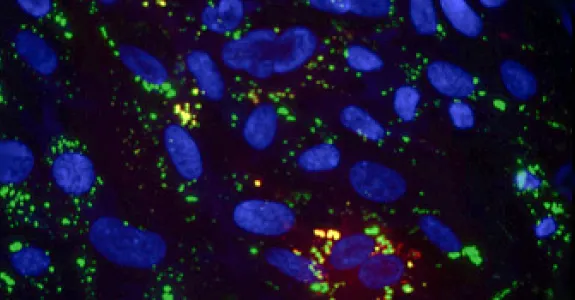
The ER is the "port of entry" for proteins destined for the cell surface and beyond. The vast majority of proteins entering the secretory pathway are synthesized on ribosomes docked at ER translocons and are co-transationally translocated into the ER lumen. Proteins synthesized at the ER are subject to covalent modifications that include N- and O-glycosylation, disulfide bond formation, and in some cases, proline and lysine hydroxylation. Membrane proteins must be threaded co-translocationally into the lipid bilayer to become membrane-integrated, often with complex topologies and typically form hetero- or homo- oligomers. This highly complex "protein biogenesis" process is assisted by a diverse network of folding catalysts and protein-modifying enzymes and is scrutinized by molecular chaperones and other "quality control" factors which ensure that only correctly folded and assembled proteins exit the ER and proceed to distal compartments of the secretory pathway.
Dr. Ron Kopito's laboratory seeks a molecular understanding of how cells maintain the fidelity of their proteomes. Unlike DNA, which can be repaired if damaged or incorrectly made, proteins cannot be mended. Instead, damaged or incorrectly synthesized proteins must be rapidly and efficiently destroyed lest they form toxic aggregates.
Their goal is to elucidate the functional networks that coordinate protein synthesis and quality control in the early secretory pathway. Currently the lab is focused on two specific systems: ERAD and ribosome UFMylation.




